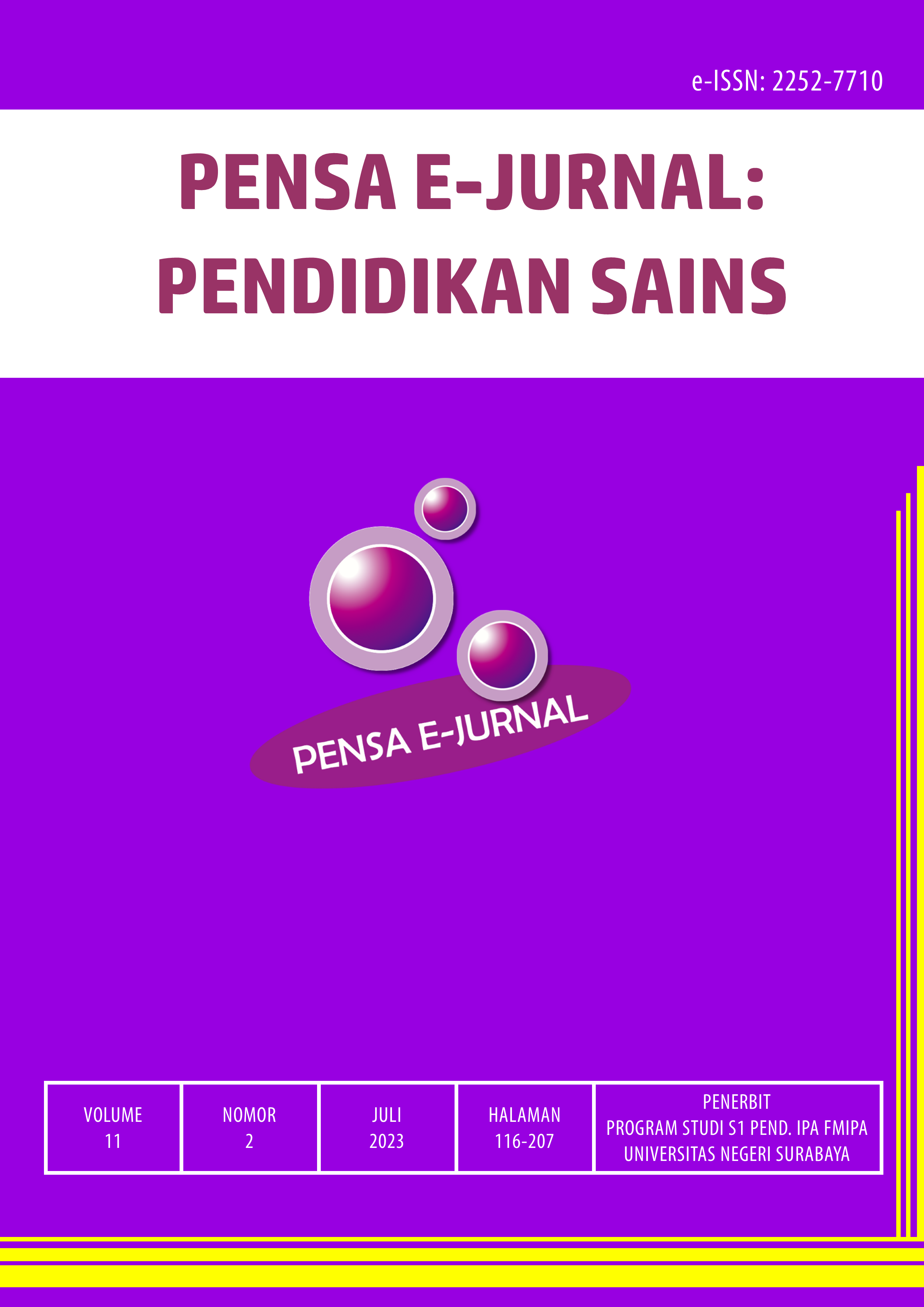ANALISIS KEAKTIFAN BELAJAR SISWA DALAM MODEL PEMBELAJARAN KOOPERATIF TIPE TGT PADA MATERI KINEMATIKA GERAK LURUS
DOI:
https://doi.org/10.26740/pensa.v11i2.53618Keywords:
active learning, cooperative learning, team game tournamentAbstract
This study aims to analyse student learning activeness in the TGT type cooperative learning model on straight motion kinematics material. The research method used is quantitative descriptive research. This research was conducted at a junior high school in Surabaya in the 2022/2023 2nd semester academic year, with the class VIII-I class consisting of 25 students. The data collection technique in this study is the observation method. Learning using the TGT type cooperative learning model was carried out very well. Based on indicators of student learning activity, in the first meeting the average student activity was 52%, with good activeness criteria, in the second meeting, the average student activity was 79%, with very good activeness criteria. So, it can be concluded that the use of the TGT type of cooperative learning model in classroom learning can increase student learning activity.
Downloads
Downloads
Published
How to Cite
Issue
Section
 Abstract views: 423
,
Abstract views: 423
, PDF Downloads: 374
PDF Downloads: 374

















